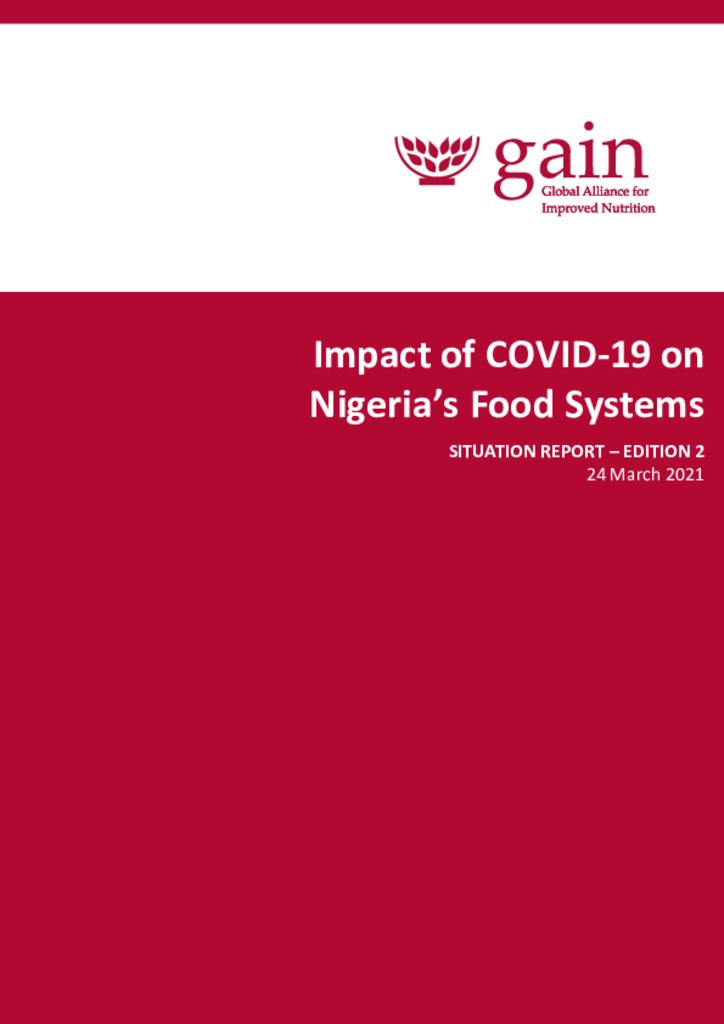The coronavirus (COVID-19) pandemic is disrupting the world as we know it, with a heavy toll on human lives and economic activities. Its rapid global spread is threatening to affect millions of people already made vulnerable by food insecurity, malnutrition and the effects of conflict and other disasters.
In response, the Global Alliance for Improved Nutrition (GAIN) developed the Keeping Food Markets Working (KFMW) programme to provide targeted support to help sustain core food systems, workers, and markets during the COVID-19 emergency. The programme’s objective is to mitigate the risk of the collapse of food systems and ensure the availability and affordability of nutritious food. This report summarises the current situation of Nigerian food systems amidst COVID-19 with a special emphasis on small and medium-sized enterprises (SMEs) and how nutritious foods value chains are changing.
The information used for this report draws on several sources, including secondary data and primary research from GAIN and its partner initiatives. To substantiate the report, a thorough desk review of available secondary data was conducted, drawing primarily on information sourced from the Food and Agriculture Organization (FAO) Big Data tool on food chains under the COVID-19 pandemic; FAO Food Price Monitoring and Analysis; Cadre Harmonise; the International Food Policy Research Institute (IFPRI); the World Bank; and others. The information is current as of early March 2021.
